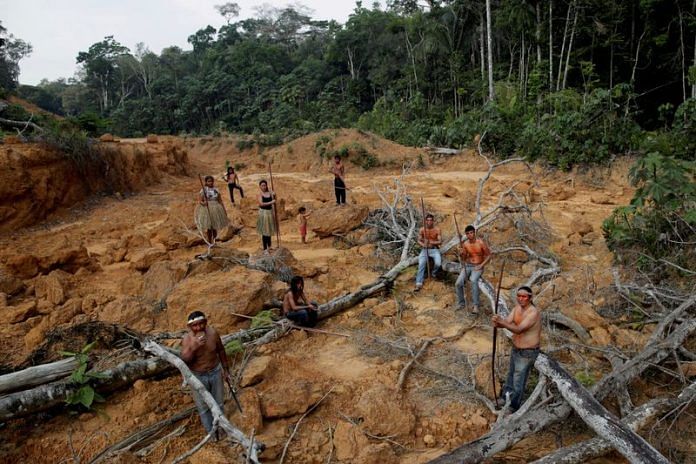
By Susanna Twidale LONDON (Reuters) – A global standard setter for voluntary carbon projects has approved three new methods for projects that reduce emissions from deforestation and forest degradation (REDD+), aiming to restore confidence in the market. Preserving forests is crucial to meeting international goals to limit global temperature increases to prevent the most extreme consequences of global warming. In the voluntary carbon market, companies can buy credits from projects that avoid emissions such as cleaner cooking fuels or deforestation prevention schemes across the world and use them to meet their internal carbon-cutting targets.
REDD+ projects have been under huge scrutiny over the past few years after media reports cast doubt over whether several projects preserved as much forest as they had claimed and that the communities involved did not benefit as much as expected. The Integrity Council for the Voluntary Carbon Market (ICVCM), an independent governance body, has sought to address integrity concerns by launching Core Carbon Principle (CCP) standards and is assessing the validity of projects. It said three new REDD+ methodologies, none of which have already issued credits, had met its CCP criteria.

“The Governing Board was satisfied that the approved methodologies address the concerns identified in older REDD+ methodologies, and will usher in a new generation of high-integrity projects,” the ICVCM said in a statement. The approved Verified Carbon Standard (VCS) methodology (VM0048) for example will now use baselines set on jurisdictional deforestation data rather than on reference areas selected by project developers. Verra, one of the largest credit issuers has issued more than 400 million VCS REDD+ credits to date to projects using the old methodologies.
It did not submit the older REDD+ methodologies for assessment by ICVCM and said all registered VCS projects are required to transition to the new methodology with the timing depending on the status of the projects. The other approved methodologies are (ART) The REDD+ Environmental Excellence Standard (TREES) v2.0, TREES Crediting Level and the VCS Jurisdictional and Nested REDD+ (JNR) Framework v4.
1. ICVCM said the current pipeline of projects with the approved methodologies have the potential to issue more than 400 million carbon credits. (Reporting by Susanna Twidale, Editing by William Maclean) Disclaimer: This report is auto generated from the Reuters news service.
ThePrint holds no responsibilty for its content. var ytflag = 0;var myListener = function() {document.removeEventListener('mousemove', myListener, false);lazyloadmyframes();};document.
addEventListener('mousemove', myListener, false);window.addEventListener('scroll', function() {if (ytflag == 0) {lazyloadmyframes();ytflag = 1;}});function lazyloadmyframes() {var ytv = document.getElementsByClassName("klazyiframe");for (var i = 0; i < ytv.
length; i++) {ytv[i].src = ytv[i].getAttribute('data-src');}} Save my name, email, and website in this browser for the next time I comment.
Δ document.getElementById( "ak_js_1" ).setAttribute( "value", ( new Date() ).
getTime() );.














